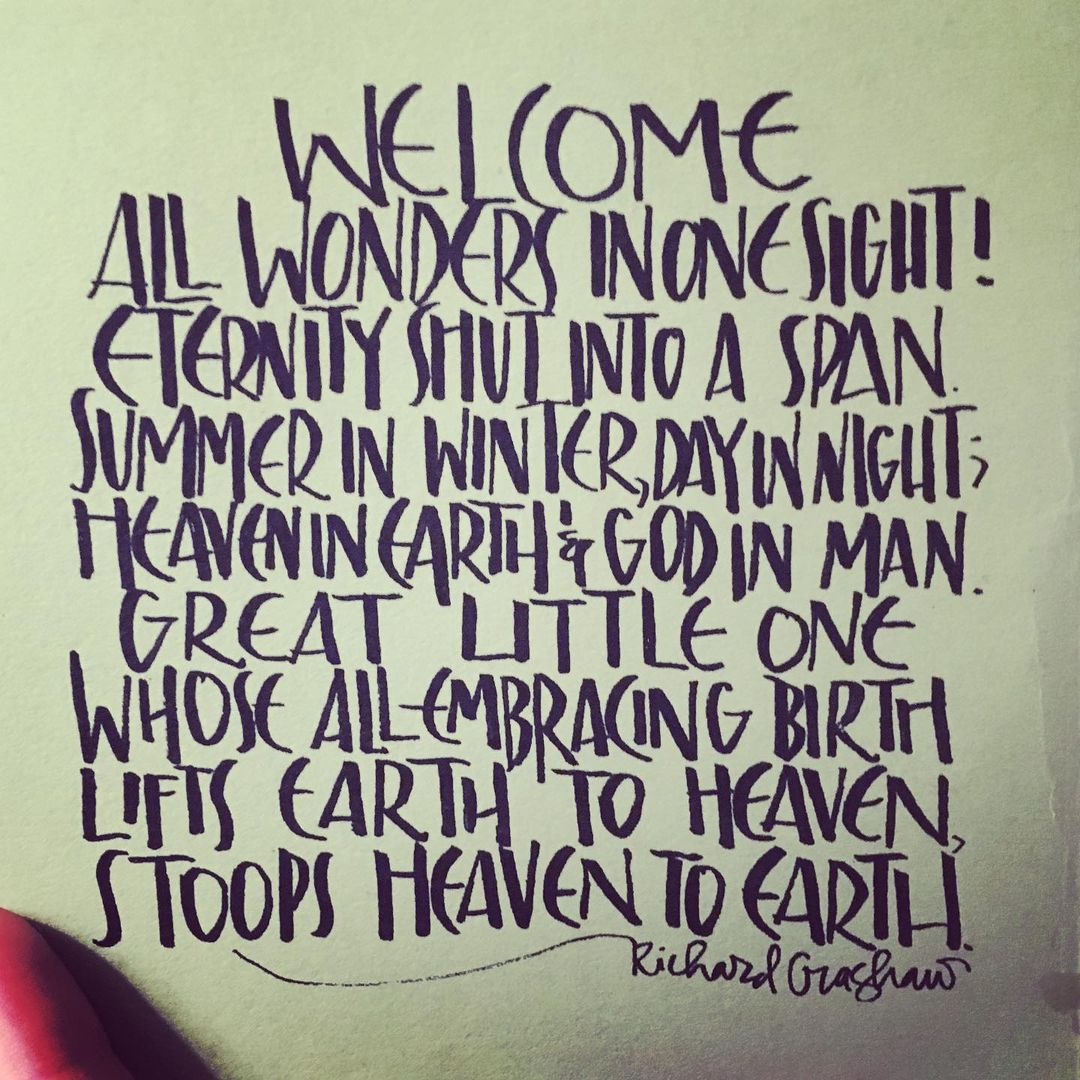Possible Preaching Themes
Possible Scientific Resources
- Always learning through knowledge and wisdom (from the first reading and Gospel)
- A Christian approach to death (from the second reading)
- Generosity and Greed (from the Gospel)
- Wisdom and knowledge
- Psychologists speculate on the physiological mechanisms in the body that seek wisdom https://wisdomcenter.uchicago.edu/news/wisdom-news/science-wisdompsychological-science-can-now-measure-and-nurture-wisdom-superseding
- A very accessible article examining how and why we seek knowledge, and how we are called to be faithful without knowing everything https://blogs.scientificamerican.com/observations/science-means-not-knowing/
- The intersection between knowledge and wisdom is discussed as “awe” https://aeon.co/essays/how-awe-drives-scientists-to-make-a-leap-into-the-unknown
- Two psychiatrists offer a literature overview of the neurobiology of wisdom https://www.ncbi.nlm.nih.gov/pmc/articles/PMC3698847/
- Science, Medicine and Death
- An accessible piece from an MD about physician’s need to recognize the inevitability of death https://www.ncbi.nlm.nih.gov/pmc/articles/PMC3399266/
- Two medical specialists discuss the “medicalization of death” preventing “healthy dying” https://journalofethics.ama-assn.org/article/how-do-medicalization-and-rescue-fantasy-prevent-healthy-dying/2018-08
- A clear article from the Cleveland Clinic about what happens when we die https://my.clevelandclinic.org/health/articles/23144-what-happens-when-you-die
- Evelyn Fox Keller attempts (in rather technical language) to hold science and death in dialogue https://books.google.com/books?hl=en&lr=&id=2afrAgAAQBAJ&oi=fnd&pg=PR9&dq=The+Science+of+Death&ots=ssq9reCf7L&sig=Hux7S39LXYbP-guY79f1DVLtGZk#v=onepage&q=The%20Science%20of%20Death&f=false
- Oil: Generosity and Greed
- An article from the Royal Society speculates on the global life-cycle of oil production, and when it will no longer be economically or environmentally viable https://royalsocietypublishing.org/doi/full/10.1098/rsta.2012.0448
- A similar article proposes the way that lack of oil will change human interaction by 2040 https://www.sciencedirect.com/science/article/pii/S092041051931246X
- Saudi Arabia (the world’s second largest oil producer) plans for a post-oil world https://www.washingtonpost.com/business/energy/saudi-arabia-reveals-oil-output-is-near-its-ceiling/2022/07/20/eff7aff6-081b-11ed-80b6-43f2bfcc6662_story.html
- Phyllis Tickle’s book Greedis derived from an accessible set of lectures at New York Public Library https://books.google.com/books?hl=en&lr=&id=c6nDz7XLac8C&oi=fnd&pg=PP15&dq=Christianity+and+Greed&ots=Xe6tOU9GBg&sig=5rso-nVUkkn5oAUhQ1Swd-0U4q0#v=onepage&q=Christianity%20and%20Greed&f=false
Homily Outline Combining Resources
Preaching outline combining the first and third themes
- On Wisdom and Knowledge
- Throughout the Wisdom literature of the scriptures (especially Apocryphal texts such as 4 Maccabees), “wisdom” is something different from acquiring facts, i.e., “knowledge.”
- A non-scientific reminder of this difference related to Jesus is here.
- Even so, “not knowing” is difficult for many, including scientists; after all, their job is to unravel mysteries.
- However, recently scientists some have begun to stress the importance of the unknownnot only when teaching young sciences, but also in the pursuit of scientific excellence.
- At Columbia University you can take an undergraduate seminar in the biological sciences on “ignorance!”
- Botanist and farmer Wes Jackson and colleagues similarly called for an ignorance based approachto the environment in order to protect it from short sighted and dangerous practices.
- This acknowledgement of the role of ignorance in science is a place where preaching might meet the sciences to confront the limits of human knowledge.
- No one can unravel all mysteries except for God.
- Thus, limits on human knowledge are a faithful response to the divine.
- In this, “wisdom” departs from “knowledge.”
- Scientists recognize that wisdom is a “unique psychological trait” that only recently is receiving research attention.
- For our Jewish forebearers Wisdom (or Sophia) is an aspect of God
- for Christians Jesus is the “wisdom of God”
- Christians who wish to imitate Jesus engage in the spiritual practice of wisdom, that ultimately assigns power to God.
- Throughout the Wisdom literature of the scriptures (especially Apocryphal texts such as 4 Maccabees), “wisdom” is something different from acquiring facts, i.e., “knowledge.”
- The Wisdom of Oil
- Today’s gospel provides an exceptional opportunity for multiple plays on the word Indeed, one may find wide latitude to include conversation about how the world will or should react when “the oil” or other fossil fuels run out.
- Lack of oil reserves will not only have environmental and scientific repercussions, but social ones as well,
- including the realignment of regional powers, new alliances, and increased competition for other natural resources.
- The reading from Matthew also highlights the theological concern of greed:
- are the foolish bridesmaids not prepared (yes) or are the wise bridesmaids greedy (yes).
- Both things can be true.
- Careful preachers will be sure to keep the focus of the parable on Jesus rather than some moralistic scolding about being prepared or not prepared.
- The crux of this parable is that into a world of greedy bridesmaids and foolish ones, the Christ comes.
- Christ as the generous “oil of God”
- As some of us may remember, the title “Christ” comes from a Greek translation of the Hebrew word for “messiah”
- which literally means “anointed with oil.”
- Kings, prophets and priests in the Hebrew Scriptures were anointed with oil
- The term eventually came to designate the hoped for Messiah who would save conquered Israel.
- Jesus as the anointed one, the “oil of God,” was like none of the bridesmaids in today’s gospel
- neither foolish
- nor greedy.
- Rather, Jesus was the very generosity, the very justice, the very wisdom of God.
- One who always “stayed awake,”
- especially attentive to those who needed his enacted wisdom: the poor, marginalized, outcasts and sinners.
- The Roman Catholic and Christian tradition has a long history of anointings:
- the New Testament witnesses the ancient practice of anointing the sick
- by at least the 5thcentury anointing was a key part of the emerging sacrament of confirmation
- eventually anointing becomes incorporated into the ordination of presbyters (priests).
- Most important is the ancient and now first “chrismation” at baptism
- which recalls Christ as anointed “priest, prophet and king.”
- Thus the baptized are invited into offering the sacrifice of the Eucharist and the sacrifice of their lives,
- to share in the prophetic ministry of Jesus
- and the mission and gift to build up and inherit the Kingdom of God.
- While fossil fuels like “oil” will eventually run dry, the “oil of God” is an eternal resource.
- Those of us anointed in baptism take up the Wisdom of our Christ to perpetuate his eternal attentiveness,
- staying awake with the graciousness and solicitude highlighted in the first reading
- ensuring that the “oil of God” continues to flow free in this wounded and needy world.
- As some of us may remember, the title “Christ” comes from a Greek translation of the Hebrew word for “messiah”
Related Homily Outlines
Couldn’t find what you’re looking for?
Try searching with another filter

Preaching with Sciences

Edward Foley, Capuchin
Duns Scotus Professor Emeritus of Spirituality
Professor of Liturgy and Music (retired)
Catholic Theological Union
Vice-Postulator, Cause of Blessed Solanus









